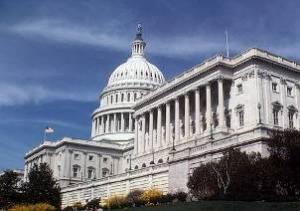Singapore is set to hang a drug offender today, Sensators Cory Booker (D-NJ) and Rand Paul (R-KY) filed a bill to allow the terminally ill to use certain psychedelics, and more.

Senate Leadership Introduces Legislation to End Federal Marijuana Prohibition. Senate Majority Leader Chuck Schumer (D-NY), along with Sen. Cory Booker (D-NJ) and Sen. Ron Wyden (D-OR), today introduced the Cannabis Administration and Opportunity Act (CAOA). The legislation repeals the federal criminal prohibition of marijuana, provides deference to states' cannabis policies, and establishes mechanisms to help repair the harms associated with the racially and economically disparate enforcement of prohibition. The CAOA removes marijuana from the Controlled Substances Act schedule entirely, ending the threat of federal prosecution for possession and licensed commercial activity, and allows states to implement their own cannabis policies free of federal interference. It also eliminates many problems facing regulated state cannabis markets, including lack of access to financial services, the inability to deduct standard business expenses when filing federal taxes, and the lack of uniform national regulatory standards and guidelines. The legislation also directs funding to reinvest in communities that have been disproportionately impacted by prohibition and helps improve diversity and inclusion in regulated cannabis markets. The bill's prospects in the evenly-divided Senate are unclear, at best.
Psychedelics
Senators Cory Booker, Rand Paul Introduce Bipartisan Legislation to Amend the Right to Try Act to Assist Terminally Ill Patients. US Senators Cory Booker (D-NJ) and Rand Paul (R-KY) introduced legislation Thursday to clarify that the Right to Try Act should allow terminally ill patients to have access to Schedule I drugs for which a Phase 1 clinical trial has been completed. Specifically, the Right to Try Clarification Act would remove any obstacle presented by the Controlled Substances Act with respect to Schedule I substances when they are used by doctors and patients in accordance with the federal Right to Try law. Companion legislation will be introduced in the House by Representatives Earl Blumenauer (D-OR) and Nancy Mace (R-SC).
The federal Right to Try law permits patients who have been diagnosed with life-threatening diseases or conditions, and who have exhausted all approved treatment options, access to certain treatments that have not yet received final FDA approval. In general, a drug is eligible for Right to Try use after a Phase 1 clinical trial has been completed for that drug but prior to the drug being approved or licensed by the FDA for any use. In other words, in limited conditions involving life threatening illness and for drugs that have been proven to be safe, the federal Right to Try law removes the FDA out of doctor-patient decisions and reverts regulation back to the states. Under the terms of the federal Right to Try law, states remain free to permit or prohibit Right to Try use under their own laws.
International
Singapore Set to Hang Drug Offender Today. The city-state is set to hang 64-year-old Singaporean citizen Nazeri Lajim for drug trafficking today. This would be the fifth execution since March after a long pause in hangings during the coronavirus pandemic. He was handed the death sentence in 2017, some five years after being arrested during an anti-narcotics operation. Nazeri was found with two bundles of what was analyzed to be 35.41 grams of heroin, exceeding the 15 gram legal threshold for the imposition of the death penalty.
The country is increasingly out of step with its neighbors on drug policy. Thailand legalized most forms of marijuana last month, and Indonesia and Malaysia are discussing medical marijuana. The government defended its hardline approach: "It really is incumbent upon us to present the choices in very vivid terms and persuade our people, including young people, that we have to make the right choices for them and for society," said Law and Home Affairs Minister K. Shanmugam.
Sudan Defense Lawyers Charge Political Detainees Forced to Undergo Drug Tests. The legal group Sudan's Emergency Lawyers, which defends people seeking to protest against rule by the military-dominated government, is charging that people being arrested at protests are now being subjected to unlawful drug tests. Detainees including at least 15 minors and six women were released after being beaten, assaulted and subjected to drug tests, the group said.
The lawyers said "what is really disturbing is that these people are now subjected to a drugs test," which they stressed "is completely contrary to the law". The lawyers say that those detained were not in possession of drugs and were not found in any suspicious situation that necessitates this procedure or would give authorities common cause. They pointed to the fact that any referral for examination must be made by the prosecution. "This procedure is purely criminal, it violates the rights of the detained, and it is against the principle of assumption of the accused's innocence, and completely contrary to the law. It degrades dignity and has a profound psychological impact," the lawyers added.
Rumors have been circulating that young protesters are using drugs, meth in particular, because they don't seem to show hunger or fatigue, but there has been no evidence to back up the rumors.
Comments
US and Singapore Share Opioid Addiction Pipe Dream
Add new comment